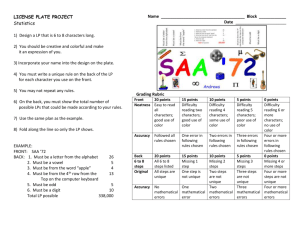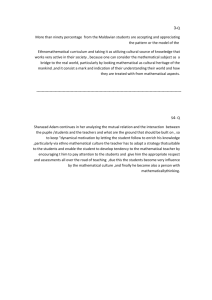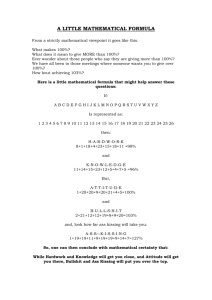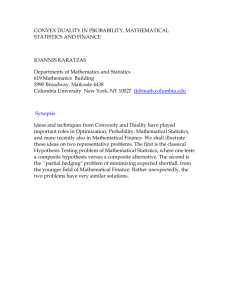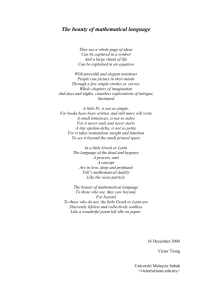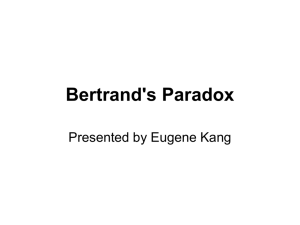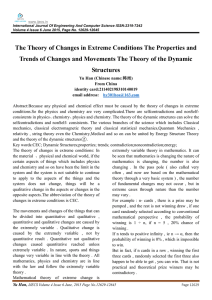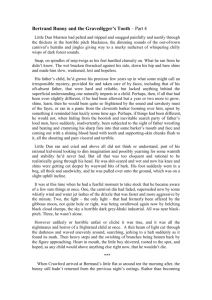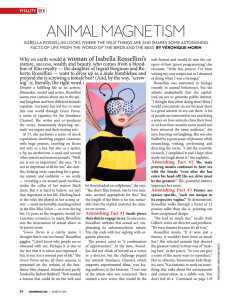THE ABC Of RELATIVITY pp 217-9
advertisement
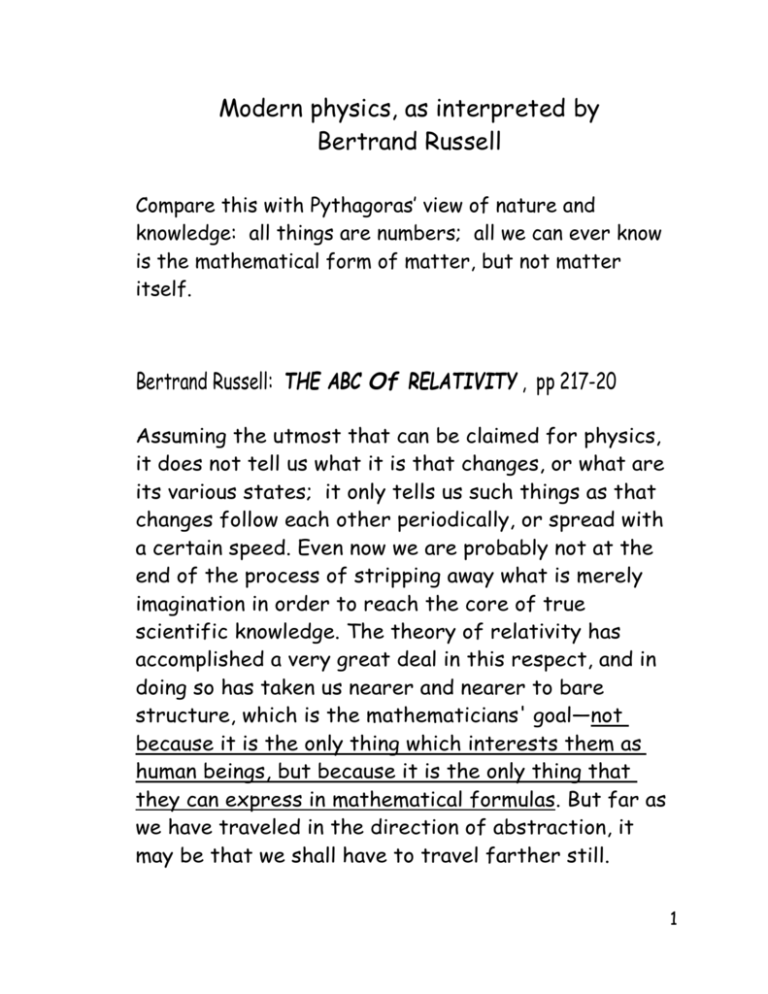
Modern physics, as interpreted by Bertrand Russell Compare this with Pythagoras’ view of nature and knowledge: all things are numbers; all we can ever know is the mathematical form of matter, but not matter itself. Bertrand Russell: THE ABC Of RELATIVITY , pp 217-20 Assuming the utmost that can be claimed for physics, it does not tell us what it is that changes, or what are its various states; it only tells us such things as that changes follow each other periodically, or spread with a certain speed. Even now we are probably not at the end of the process of stripping away what is merely imagination in order to reach the core of true scientific knowledge. The theory of relativity has accomplished a very great deal in this respect, and in doing so has taken us nearer and nearer to bare structure, which is the mathematicians' goal—not because it is the only thing which interests them as human beings, but because it is the only thing that they can express in mathematical formulas. But far as we have traveled in the direction of abstraction, it may be that we shall have to travel farther still. 1 In the preceding chapter, I suggested what may be called a minimum definition of matter -- that is to say, one in which matter has, so to speak, as little "substance" as is compatible with the truth of physics. In adopting a definition of this kind, we are playing for safety: our tenuous matter will exist, even if something more beefy also exists. We tried to make our definition of matter, like Isabella's gruel in Jane Austen, “Thin, but not too thin." We shall, however, fall into error if we assert positively that matter is nothing more than this. Leibniz thought that a piece of matter is really a colony of souls. There is nothing to show that he was wrong, though there is also nothing to show that he was right: we know no more about it either way than we do about the flora and fauna of Mars. To the nonmathematical mind, the abstract character of our physical knowledge may seem unsatisfactory. From an artistic or imaginative point of view, it is perhaps regrettable, but from a practical point of view it is of no consequence. Abstraction, difficult as it is, is the source of practical power. A financier, whose dealings with the world are more abstract than those of any other "practical" person, is also more powerful than any other practical person. Financiers can deal in wheat or cotton without needing ever to have seen either: all they need to know is whether the price will go up or down. This is abstract mathematical knowledge, at least as compared to the knowledge of 2 the agriculturist. Similarly, the physicist, who knows nothing of matter except certain laws of its movements, nevertheless knows enough to be able tomanipulate it. After working through whole strings of equations, in which the symbols stand for things whose intrinsic nature can never be known to us, the physicist arrives at last at a result which can be interpreted in terms of our own perceptions, and utilized to bring about desired effects in our own lives. What we know about matter, abstract and schematic as it is, is enough, in principle, to tell us the rules according to which it produces perceptions and feelings in ourselves, and it is upon these rules that the practical uses of physics depend. The final conclusion is that we know very little, and yet it is astonishing that we know so much, and still more astonishing that so little knowledge can give us so much power. Also this quotation from page 216: What we know about the physical world, I repeat, is much more abstract than was formerly supposed. Between bodies there are occurrences, such as light waves; of the laws of these occurrences we know something--just so much as can be expressed in mathematical formulas--but of their nature we know 3 nothing. Of the bodies themselves, as we saw in the preceding chapter, we know so little that we cannot even be sure that they are anything: they may be merely groups of events in other places, those events which we should naturally regard as their effects. 4


